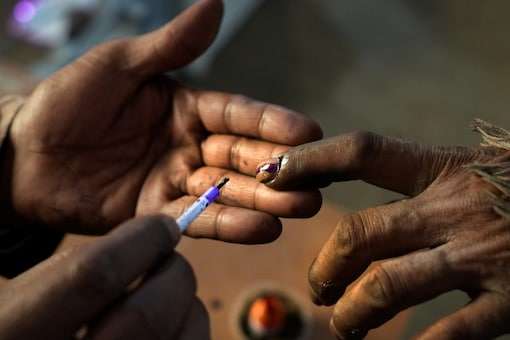Sri Lanka is likely to raise taxes and curb spending in its annual budget to meet the International Monetary Fund’s conditions and maintain a $3 billion bailout, but elections next year might see the government delay some reforms.
President Ranil Wickremesinghe is expected to announce a narrower budget deficit from the last fiscal year’s target of 7.9% of gross domestic product and lay out a road map to boost investments to aid economic recovery. Wickremesinghe, who is also the finance minister, needs to win over voters ahead of presidential elections due in 2024.
“In presenting the budget, Wickremesinghe is caught between meeting IMF targets and also positioning himself to win an election,” said Dhananath Fernando, chief executive at Advocata Institute, a Colombo-based think tank.
Wickremesinghe will present the budget on Monday at 12 noon. He came to power last year after a popular uprising ousted his predecessor Gotabaya Rajapaksa for his role in the country’s worst financial crisis in seven decades.
The veteran politician delivered a deal from the IMF for Sri Lanka and he now needs to ensure it meets targets in order to unlock funds under the program. While progress on debt restructuring will be key to getting the IMF executive board’s approval for a $330 million payout, Sri Lanka is struggling to increase government revenue with the Washington-based lender projecting a 15% shortfall this year.
Higher taxes are “pivotal for Sri Lanka to consistently receive funds,” said Jeemin Bang, an economist with Moody’s Analytics in Singapore. Bang expects enhanced fiscal discipline, a focus on low-income households and corruption prevention measures in the budget — in line with the IMF demands.
Sri Lanka’s bondholders will also watch the path to meeting the IMF targets, which include reaching a primary surplus of 2.3% by 2025 and reducing debt to GDP from 128% last year.
On Edge
In 2022, food and fuel shortages led to long queues while businesses had to shutter for weeks with a lack of dollars and supplies, causing widespread anger. This year, there are signs of a turnaround as essential items are more readily available, foreign reserves have risen again with tourists returning to Sri Lanka, and factories restarting.
Inflation has come down from a peak of 70% last year and the central bank has been cutting interest rates after an aggressive hiking cycle.
Full recovery is not assured, the IMF said last month. For one, Sri Lanka needs to keep fuel and electricity rates at market prices so that the government recoups costs, it said.
Sri Lanka has cleared a proposal to revise power tariffs quarterly from every six months. But any further hikes in utility prices and higher taxes may risk angering voters who are dealing with increased personal and corporate taxes and a planned jump in value-added tax.
Things appear more promising on the debt restructuring front. Sri Lanka has carried out an exchange of local debt and struck a tentative deal with the Export-Import Bank of China. A group of dollar bondholders also submitted a restructuring proposal, though it received an unfavorable initial response from authorities.
“The focus now is on restructuring and making debt sustainable,” Advocata’s Fernando said. “Providing stability for the private sector is very important because the government now has very little fiscal space to act even if debt is successfully restructured.”
Source – Bloomberg
–Agencies
